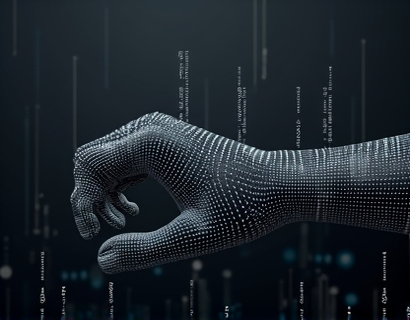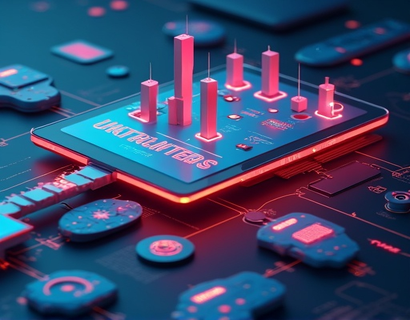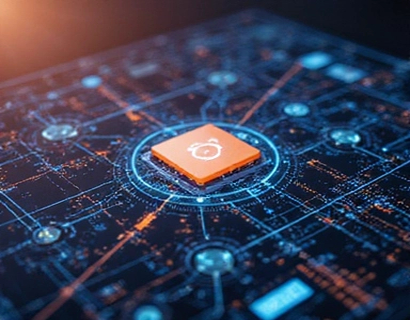Elevating Digital Experiences: The Synergy of Crypto and AI
The intersection of cryptocurrency and artificial intelligence represents a frontier of technological innovation, where the potential for transformative digital experiences is vast. This article explores how the convergence of these two advanced technologies is not only reshaping the landscape of digital interactions but also driving forward the evolution of applications and services that empower users in unprecedented ways.
The integration of blockchain technology with AI is creating a new paradigm in digital services. Blockchain's inherent characteristics of transparency, security, and decentralization, combined with AI's capabilities in data analysis, pattern recognition, and autonomous decision-making, are paving the way for more robust, efficient, and user-centric digital solutions. This synergy is particularly significant for tech professionals and early adopters who are keen on leveraging these technologies to enhance user experiences and drive future growth.
Blockchain's Role in AI Ecosystems
Blockchain technology provides a foundational layer for AI systems, ensuring data integrity and security. In traditional AI models, data is often centralized, making it vulnerable to breaches and manipulation. By utilizing blockchain, data can be stored in a decentralized manner, reducing the risk of tampering and enhancing trust among users. Smart contracts, self-executing contracts with the terms directly written into code, can automate and enforce agreements related to data sharing and usage, streamlining processes and reducing overhead costs.
Moreover, blockchain can facilitate the creation of decentralized AI models, where multiple parties contribute to the training and validation of AI algorithms without relying on a central authority. This not only democratizes access to AI technologies but also promotes a more equitable distribution of benefits. For instance, decentralized data markets can emerge, allowing individuals to monetize their data while maintaining control over its usage.
AI-Enhanced Cryptocurrency Applications
On the cryptocurrency front, AI is revolutionizing the way digital assets are traded, managed, and secured. AI algorithms can analyze vast amounts of market data to predict price movements, identify trends, and optimize trading strategies. This leads to more informed decision-making and potentially higher returns for investors. Additionally, AI-driven risk management systems can detect and mitigate fraudulent activities, enhancing the overall security of cryptocurrency transactions.
Smart contracts on blockchain platforms can be programmed with AI logic to execute complex financial operations autonomously. For example, AI can dynamically adjust the terms of a smart contract based on real-time market conditions, ensuring optimal outcomes for all parties involved. This fusion of AI and blockchain in financial services not only improves efficiency but also opens up new possibilities for decentralized finance (DeFi) applications.
Enhancing User Experiences through Personalization
One of the most compelling applications of AI in the context of cryptocurrency is personalization. AI algorithms can analyze user behavior, preferences, and historical data to provide tailored recommendations and services. In the realm of digital assets, this means that users can receive customized investment advice, curated content, and personalized portfolio management tools. Such personalized experiences not only enhance user satisfaction but also foster greater engagement and loyalty.
For instance, a digital asset management platform can use AI to monitor a user's portfolio in real-time, offering insights and suggestions based on market trends and the user's risk profile. This level of personalization is particularly valuable in the complex and fast-paced world of cryptocurrency, where staying informed and making timely decisions is crucial.
Security and Privacy Enhancements
Security and privacy are paramount concerns in the digital age, and the combination of AI and blockchain offers robust solutions. AI can enhance the detection of anomalous activities and potential security threats by analyzing patterns and behaviors in real-time. Machine learning models trained on historical data can identify suspicious patterns that may indicate fraudulent activity, enabling proactive measures to protect user assets.
Blockchain's immutable ledger, when combined with AI, further strengthens security by providing a transparent and tamper-proof record of all transactions. AI can also improve privacy by implementing advanced encryption techniques and zero-knowledge proofs, allowing users to verify transactions without revealing sensitive information. This ensures that users can transact with confidence, knowing their data is secure and their privacy is protected.
Decentralized Identity Management
AI and blockchain are also transforming identity management in the digital space. Traditional identity systems are centralized and often vulnerable to breaches. Decentralized identity solutions, powered by blockchain and AI, offer a more secure and user-controlled approach. Users can create and manage their digital identities, choosing what information to share and with whom, all while maintaining control over their data.
AI can enhance these systems by providing sophisticated authentication mechanisms, such as biometric verification and behavioral analysis, to ensure that only authorized users access their accounts. This not only improves security but also enhances the user experience by simplifying the authentication process and reducing friction.
Challenges and Considerations
While the potential benefits of merging AI and blockchain are significant, there are challenges that need to be addressed. Scalability remains a key issue, as both technologies require substantial computational resources. Developing more efficient algorithms and leveraging edge computing can help mitigate these challenges, making AI and blockchain more accessible and practical for widespread use.
Regulatory frameworks are another critical consideration. As these technologies evolve, governments and regulatory bodies must adapt to ensure that they promote innovation while protecting consumers. Clear guidelines and standards will be essential in fostering a healthy ecosystem where AI and blockchain can thrive.
Future Prospects
The future of AI and blockchain integration holds immense promise. As these technologies continue to mature, we can expect to see even more innovative applications across various industries. In the context of digital experiences, the combination of AI and blockchain will likely lead to more intuitive, secure, and personalized interactions. Users will benefit from seamless, trustless transactions, enhanced security, and tailored services that cater to their unique needs and preferences.
For tech professionals and early adopters, the convergence of AI and blockchain presents a fertile ground for exploration and innovation. By staying at the forefront of these developments, they can harness the full potential of these technologies to create groundbreaking solutions that redefine digital experiences.
In conclusion, the synergy between cryptocurrency and AI is not just a technological trend but a transformative force that is reshaping the digital landscape. By embracing this synergy, we can unlock new possibilities for enhanced user experiences, greater security, and sustainable growth in the digital world.










































